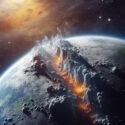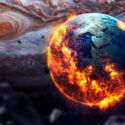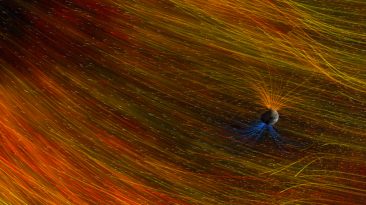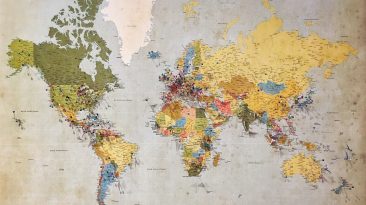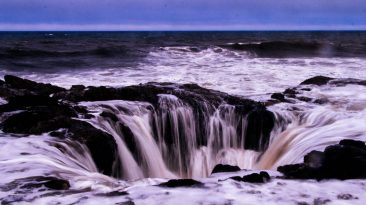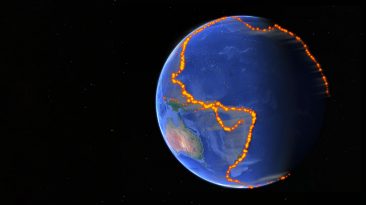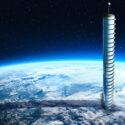Are you tired of high gas prices? If only you had an ocean of gasoline. Well, now you do! In this episode, we’ll fill all our oceans with gasoline instead of saltwater. How soon would this gasoline ocean be set on fire? What would happen to freshwater? And why would gasoline oceans destroy global trade?
We use a lot of gasoline. In 2020, Americans alone used about 465 billion l (123 billion gal) just at the gas pump. And we don’t just use it for powering our cars. We add gasoline to chemicals, plastics and other synthetic materials that we use every day. And because we burn so much of it, we produce a lot of human-made carbon dioxide.
And we’re already dealing with the extreme weather and natural disasters brought on by warming our planet. So how much worse would it get if our oceans were made of gasoline?
Oceans full of gasoline might seem like an explosive disaster waiting to happen. But our oceans wouldn’t all go up in flames. By itself, liquid gasoline doesn’t burn. But when gasoline vapor mixes with air, it becomes a flammable gas. Every fuel needs to reach a specific temperature to give off vapor. This is called a flashpoint.
Unfortunately, gasoline has a very low flashpoint. It only needs temperatures of -40 °C (-40 °F) to produce vapor. And since the Earth’s average temperature is 16° C (61° F), you’d see oceans of liquid gas that were constantly evaporating. So although the oceans wouldn’t go up in flames, their surfaces would. Beachfront properties would be looking out over a vision of hell.
And as the oceans burned, there’d be an incredible surge of toxic smoke. Carbon dioxide, carbon monoxide and nitrogen oxides would fill the air. Climate change would accelerate even more. Marine life would die instantly, so say goodbye to seafood. And because oceans create half the oxygen in the atmosphere, you’d have difficulty breathing.
Instead of oxygen, you’d inhale toxic chemicals. Carbon monoxide would be especially hazardous. It would replace the oxygen in your red blood cells, causing severe tissue damage. And if you lived close to an ocean, you could die from breathing too much carbon monoxide. There’d also be issues from long-term exposure to toxic gas.
All over the world, people would start having tremors, seizures and hallucinations. Some would experience memory loss. And it wouldn’t end there. Gasoline is only 75% as dense as ocean water, so gasoline oceans wouldn’t have enough buoyancy for ships to float. And because transport ships wouldn’t be able to, well, transport stuff, oceans of gasoline would destroy global trade.
And that would increase the cost of everyday items. OK. Here’s the question I know you’ve been waiting for. Would it rain gasoline? Well, gasoline is made of various hydrocarbons, which all have different properties. When they turn into the gaseous state, the hydrocarbons separate and disperse.
So you wouldn’t see gasoline rain. But you would see rain composed of separate hydrocarbons. And this would cause our skies to rain acid. That’s because the gasoline oceans would emit sulfur dioxide and nitrogen oxides. They would mix with water and oxygen in the atmosphere and fall as acid rain. And that would be bad because acid rain would damage plants and crops, creating food scarcity.
But even more important than food is fresh water. And that would be hard to come by. Any freshwater that flowed into the ocean would instantly become contaminated. So we’d have to build a closed loop cycle of freshwater to sustain life on Earth. Now, would anything good come from the oceans turning into gasoline?
Well, the price tag at your local gas pump would plummet. But I don’t think it would be worth our entire planet being covered in toxic smoke or food and freshwater becoming scarce. And you’d be battling skin and respiratory illnesses. You might fare better if the oceans were filled with liquid mercury instead of gasoline.
Sources
- “What Is Gasoline Made Of?”. 2020. wonderopolis.org.
- “Use Of Gasoline – U.S. Energy Information Administration (EIA)”. 2022. eia.gov.
- “Gasoline – Energy Education”. 2022. energyeducation.ca.
- “Ethanol And Gas Mixture Is Bad For Outboard Motors”. 2022. christinedemerchant.com.
- “Carbon Monoxide Poisoning – Symptoms And Causes”. 2022. mayoclinic.org.





